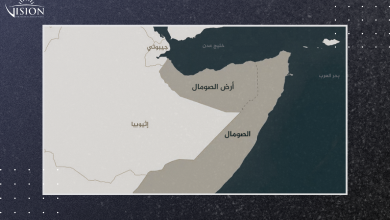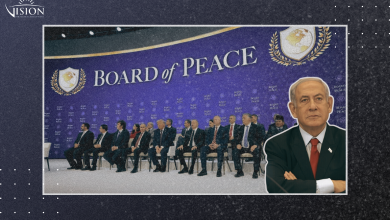Dennis Ross and the Arrogance of American Policy in the Region

Ahmed Atawna*
The Americans, whether in official capacities or within research and academic institutions, present themselves as exceptional experts and custodians capable of devising the most suitable plans, formulations, and approaches to international crises.
With a tone of superiority, they dictate to each party what should be done, what is possible, and what is not feasible, deciding on behalf of the peoples what is best for them, and what will ensure a safe and prosperous future from the American perspective.
They also determine who the (righteous) parties, forces, and ideas are, and who the (evil) entities that must be eradicated are. They impose their own definitions and concepts of stability, prosperity, development, terrorism, violence, and law, among others.
Those who do not comply with this ready-made American recipe face severe consequences. They have allowed themselves, with all arrogance and hubris, to violate the blood of the innocents and destroy their countries and dismantle their states; to impose what they believe, as the experiences of Iraq, Afghanistan, Syria, Yemen, and Libya are not far removed.
The Americans attempt to deal with the current events in the Palestinian crisis and the genocide in Gaza with the same mentality and methodology, continuously offering proposals and political perspectives to emerge from the crisis, known as the day after the war.
From the early days of the conflict, they began promoting the idea of forming international forces to control Gaza and manage it during a transitional period. Later, they proposed forming an Arab force for the same purpose. When they failed to garner support for these ideas, they presented another vision based on renewing the Palestinian Authority; to become qualified “according to the American-Israeli vision” to manage Gaza, then began collaborating with some countries and powers to establish a seaport in the north of the Strip.
Throughout this process, the American does not even consider what the Palestinian might accept, or what suits their national interests. Indeed, none of these ideas were discussed or consulted with any relevant parties before being proposed, and they were often introduced through statements by spokespeople for the State Department, the White House, or various media outlets and think tanks.
Undoubtedly, what has contributed to the United States’ unique position in proposing solutions and perspectives is the lack of initiative from Arab, Islamic, and international actors, and their reluctance to propose any political formula that might end the war and open a suitable political horizon for the Palestinians. Thus, the door was left wide open for American ideas and visions, which hold only one constant: the interest of Israel, its political ambitions, and the guarantee of its future.
With a Perspective from Dennis Ross
This American mindset is evident in an article by the politician and renowned American expert Dennis Ross, titled “Israel Needs a New Strategy,” published on the Independent Arabia website on March 16, 2024. Drawing on his extensive experience in the Palestinian issue, which he has worked on for many years across several American administrations, Ross offers his recipe or vision for dealing with the genocide in Gaza. He outlines the objectives of each party involved in the war and specifies what each should and can do.
Saudi Arabia, the UAE, and Qatar can contribute only in areas Ross believes they have expertise in or are worthy of. He states in his article, “The problem, however, is that 70 percent of all buildings in the north are either destroyed or uninhabitable. Therefore, the first step in the strategy must be to establish a mechanism to address the humanitarian situation, led by the United States and in partnership with Saudi Arabia and the Gulf states. Immediate assistance must be provided concerning temporary and mobile housing.
It is undeniable that the Saudis, given their experience in managing the very large numbers of pilgrims who come to the Kingdom and often require accommodation, can undoubtedly contribute to this effort. The Emiratis and Qataris can also fund caravans, trailers, and prefabricated homes.
Ross then attempts to find a way for them to navigate their publicly declared political stances on the war and reconstruction, writing, “It is true that the Gulf states have stated they will not provide reconstruction aid unless it is linked to a plan to resolve the Israeli-Palestinian conflict. Nonetheless, they are already contributing to humanitarian aid, and when it comes to meeting humanitarian needs, nothing is more important than providing food and shelter. Undoubtedly, these countries can justify their actions as necessary to alleviate the suffering of the Palestinians.”
This stance indicates that Americans do not take the political positions of Arab states, particularly those of significant political importance, seriously. They believe that Arab countries can act contrary to their declared positions, and the problem lies only in how to justify or facilitate the bypassing of these political stances to the public. It seems that they do not attribute significant weight to the nature and reality of the political stance itself, and the national, nationalist, and political motives and backgrounds behind these positions.
Later in the same article, Dennis Ross advises Israel to benefit in its dealings with Hamas as an ideology from the American experience in dealing with ISIS in Syria and Iraq, considering that the United States succeeded in defeating ISIS. He ignores that those who fought and defeated ISIS were the people of the Arab and Islamic region, and that ISIS was an anomaly in the region’s culture and the religion of its people, and that it was created, grew, and spread under American sponsorship, as publicly acknowledged by Hillary Clinton. The majority of its cadre were assembled from around the world, especially from Western countries with their intelligence agencies’ backing.
In contrast, Hamas is a local Palestinian national resistance movement. Its leaders, cadre, youth, and fighters are from the towns, villages, and camps of Palestine, distributed across all social, economic, and cultural strata of the Palestinian people. They include no foreigners, unknowns, or individuals with unidentified identities. However, it is the superiority and arrogance that blinds its bearer, leading them to portray others as they wish and find pleasing, not as the facts present them.
Replicating Failed Experiments
Drawing from the failed American experience in Afghanistan, Dennis Ross offers the Palestinians a vision for the day after the war. The failure of his country to impose a political leadership on the Afghan people—believing in the feasibility of installing a pro-American Karzai regime and imposing their will on the will of the people—has not deterred him from proposing that the Palestinians repeat the same experiment. Ross suggests, “Furthermore, it requires establishing an alternative to ‘Hamas’ capable of managing daily administration and ensuring the necessary law and order for reconstruction. In other words, the desired goal of both Israel and the United States should be the permanent disarmament of Gaza and preventing the use of the sector again as a platform for launching attacks against Israel. This would be beneficial for both Israelis and Palestinians, as Israel would not need to isolate or attack Gaza again.”
Ross then presents a specific vision for the future administration of Gaza: “The Gulf states, along with Egypt, the European Union, Jordan, and the United States, should collaborate with the administrative system (the bureaucratic infrastructure) in Gaza, which was first established by the Palestinian Authority in 1994 and continued to operate under Hamas. This system to play an administrative, not a political, role in managing daily needs.
Additionally, Palestinian businessmen from inside and outside Gaza should be involved in managing the sector, and humanitarian organizations should cooperate with them to distribute aid and stimulate the beginnings of commercial activity.”
Ross clearly states that his plan does not include any political goals or vision for the Palestinians, and as usual, he attributes the absence of that to the Palestinians themselves and not to Israeli extremism, the fascist right within it, or to American bias and hypocrisy. He states, “Given that 91 percent of Palestinians believe that Palestinian Authority President Mahmoud Abbas should resign, and 80 percent are convinced that the Palestinian Authority is corrupt, it is pointless to talk about a political horizon or a final goal.”
He continues, as if Israeli consent to the establishment of a Palestinian state were a Zionist concession contingent upon good Arab and Palestinian conduct. Ross prescribes to the Arabs how they should view and engage with the Palestinian resistance and Hamas, writing, “For the Israelis to accept the possibility of a Palestinian state, they must feel reassured.
Observations on American Approaches
In light of the American experiences in various countries in our region and following what has been issued by the Americans since the beginning of the war, the following observations can be noted:
1. The United States has either been unable or unwilling to spread stability and security or to assist peoples in achieving their rights in any of the countries it has occupied or actively intervened in their affairs and crises. The experiences in Iraq, Afghanistan, Syria, and Yemen confirm this.
2. The United States often manages to spread chaos, destruction, and devastation wherever it goes, but it does not contribute to building stability and development in those countries.
3. The United States does not consider the will of the people, their orientations, aspirations, and imposes what it believes serves its interests and the interests of Israel.
4. The United States does not have permanent friends, even among those who cooperate with it; it changes its tools and partners according to its interests and can abandon any local party if necessary.
5. The United States always adopts Israeli vision and goals regardless of the government ruling in Tel Aviv; if there is any disagreement, it is with the government only and not with Israel as an entity.
6. The United States refuses the idea of imposing any solutions or even measures on Israel, and attempts only to persuade it to adopt certain positions through incentives or encouragement, treating Israel as its pampered child.
7. There is no evidence of genuine American concern for the rights of the peoples in the region, particularly the Palestinian people, and insists on denying the legitimacy of their resistance and struggle as part of liberation.
8. The United States does not value human rights when it concerns the peoples of the region, using the global values system only for deception and for political and media purposes, having violated the most basic human rights in the countries it has intervened in.
Regarding the ongoing conflict in Gaza, Arab and Palestinian interactions must consider the aforementioned issues. There is a high responsibility, especially on the Palestinians, to prevent the United States from shaping the scene as it has typically done in other countries, which could lead to a landscape of chaos, division, and disorientation potentially lasting for years.
A scrutiny of American interventions in various countries leads to the realization that what American ingenuity and political arrogance can produce is merely chaos, destruction, instability, and divisions, destroying the present and future of nations for decades.
Relying on American solutions and approaches to the Palestinian issue will only lead to further chaos, devastation, and loss, and the Palestinians will reap nothing but the perpetuation of occupation, division, and the destruction of the future of Palestinian generations for decades.
Despite the Palestinian’s well-acquainted experience with the American role after more than 30-year of Oslo Accords, many indicators suggest that the official Palestinian political leadership, including the Palestinian Authority and the PLO, is on the path to repeating the experience and engaging in a new futile American gambit. This is a development that must be cautioned against and closely monitored.
The magnitude of sacrifices made and still being made by the Palestinian people necessitates a profound reflection on oneself and responsible action to thwart any opportunities for the United States and Israel to exploit.
*Expert on the Palestinain Issue, and the General Manager of Vision Centre for Political Development





